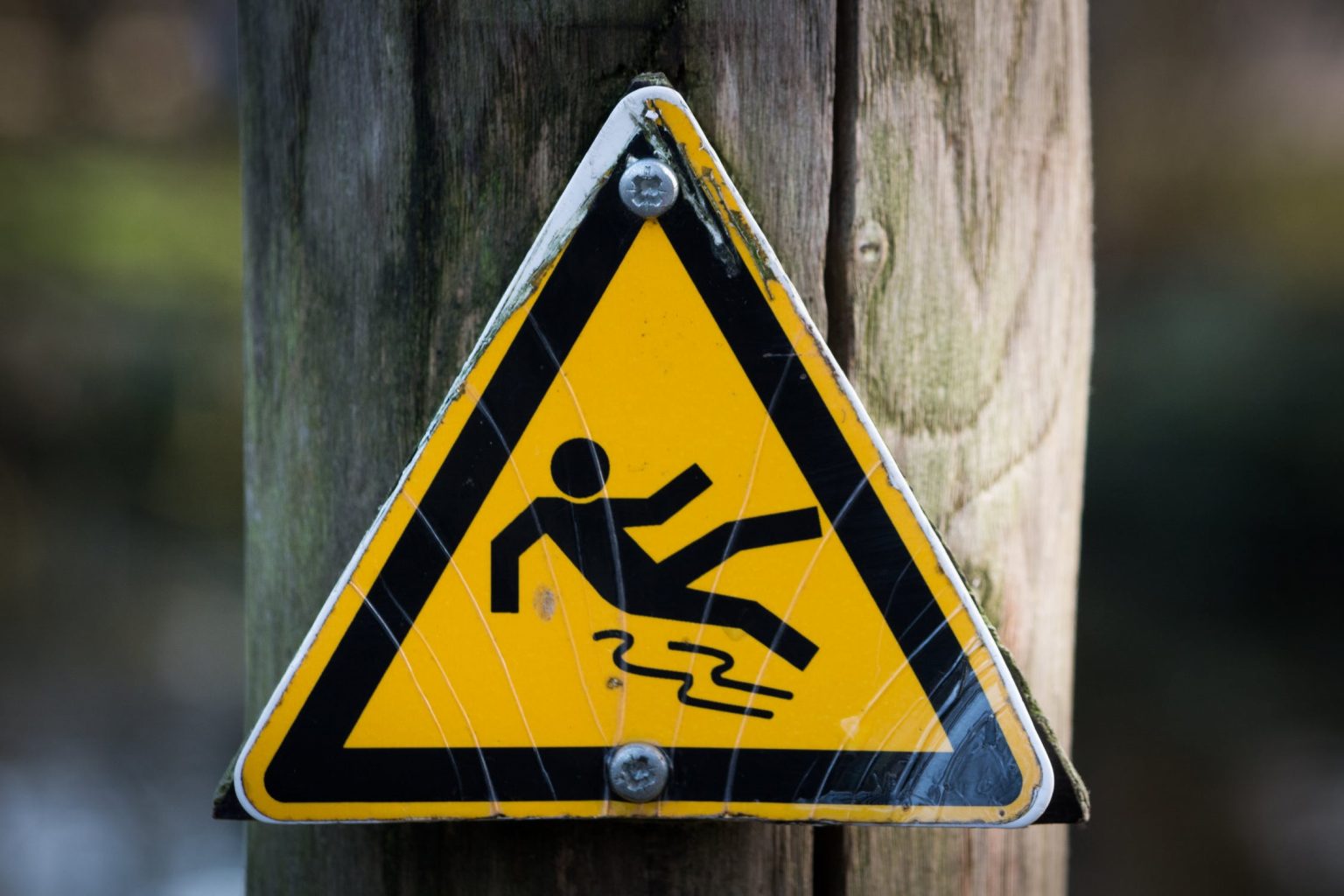According to the National Safety Council, rear-end collisions are the most common type of two-vehicle car accident, accounting for over 4 million crashes in 2018. A rear-end car accident occurs when a vehicle hits the back of the car in front of it.
While rear-end car accidents are always challenging and stressful matters to deal with, the process becomes even more complicated when you’re rear-ended by an out-of-state driver. However, a knowledgeable personal injury attorney can expertly navigate the system for you and ensure you receive compensation.
Florida’s No-Fault Insurance Laws
Traditional liability auto insurance, which is still the standard in most states in the U.S., assigns “fault’ for any car crash. Once fault is determined, the responsible party’s insurance company is on the hook for all medical expenses, pain and suffering, and property damage resulting from the car crash.
However, Florida is one of a handful of states in the U.S. that have enacted “no-fault” auto insurance laws. This means that your car insurance company must provide Personal Injury Protection (PIP) coverage as part of your auto insurance policy. PIP reimburses your medical expenses and lost wages resulting from the crash, even if you do not cause the accident.
Florida no-fault insurance laws also provide bodily injury coverage for:
- Relatives in the same household
- Anyone driving the insured vehicle
- Passengers
- Pedestrians or bicyclists injured by the insured vehicle
However, there are substantial limitations to the coverage you receive through PIP. First, the maximum amount PIP will pay is $10,000, which is relatively low, given that the average price of a 3-day hospital stay is about $30,000.
On top of that, Florida PIP only covers 80% of the medical expenses you incur and 60% of lost wages if you can’t work due to your injury. This means you’ll be stuck footing the bill for 20% of your medical costs and will lose over a third of your regular income.
Property Damage
PIP also will not compensate you for any property damage, pain and suffering, or emotional distress you experience due to the accident. Traditional liability rules still apply for property damage claims, so you can file a property claim with the at-fault driver’s insurer, or your own insurer, if you carry collision coverage.
Common property damages in rear-end collisions include the cost of repairing your car and replacing personal property damaged or destroyed in the accident, such as your phone, a laptop, or clothing.
You can also receive “loss of use” damages for the time your car is in the shop. In Florida, you are entitled to the cost of renting a similar vehicle for the time you cannot use your car, regardless of whether or not you actually rent one.
If your vehicle is declared a total loss, you are entitled to receive its fair market value. Florida law defines a “total loss” as any situation where the cost to repair the car is 80% or greater of its actual cash value.
When You Can Sue
To step outside of Florida’s no-fault system to pursue a liability claim against the at-fault driver, you must suffer “serious” injuries as specified by state law. Florida defines a serious injury as any of the following:
- Significant permanent loss of an essential bodily function
- Permanent injury other than scarring or other disfigurements
- Significant permanent scarring or disfigurement.
- Death
If your injuries satisfy this threshold, you can hold the at-fault driver responsible for the accident by filing a claim against their auto insurance policy or pursuing a personal injury lawsuit. You will also be able to receive compensation for non-economic losses, which include pain, suffering, mental anguish, and inconvenience in Florida.
Suing an Out-of-State Driver
The fact that an out-of-state driver does not live in Florida does not mean they don’t have to follow the law while they are in the state. Like Florida drivers, out-of-state drivers have a legal duty to avoid causing car crashes on Florida roads. If the out-of-state driver is at fault for the accident, you can file a claim with their insurance company for property damage or serious injury.
You are also able to pursue a lawsuit against a non-Floridian that injures you in a car crash. The statute that gives Florida courts the power to make decisions that apply to out-of-state drivers is called Florida’s “Long Arm Statute.”
By entering Florida and causing an accident within the state, the out-of-state driver is legally considered to have subjected themselves to Florida’s jurisdiction. This means that the driver will be bound by a judgment against him issued by a Florida court. The driver cannot avoid responsibility for their actions by leaving Florida.
Liability in Rear-End Collisions
The driver of the last car in a rear-end accident is almost always assigned fault. Most of the time, the rear-ender will be fully liable for the crash, and the only thing to fight with their insurance company about is how much money you should get for your property damage.
However, there are a few exceptions to this general rule, where the driver who was rear-ended can be found responsible. For instance, if the front driver was driving recklessly or erratically, making it impossible for the back driver behind to avoid hitting them, the front driver will probably be found at fault. The same is true if the front driver stops short without giving any reasonable notice to the back driver.
In some situations, the insurance company might argue that both parties are at least partially responsible for the accident. This is called comparative fault or comparative negligence. Florida law follows a “pure comparative fault” rule when both drivers are found to have some responsibility for a car crash. Under this rule, your damages are reduced by a percentage equal to your share of the blame.
What To Do After a Rear-End Collision
If you have been involved in a car crash such as a rear-end collision, there are steps you can take to protect your ability to recover compensation.
Call the Police To File an Accident Report
In Florida, you are legally obligated to immediately contact local law enforcement if you are involved in any of the following types of car crashes:
- An accident involving an injury
- An accident where somebody was killed
- A hit-and-run accident
- An alcohol-related accident
- An accident that requires a wrecker to remove a vehicle
- An accident involving a commercial motor vehicle
- An accident where at least $500 estimated property damage occurred
You are eligible to self-report the accident on the Florida Department of Highway Safety and Motor Vehicles (FLHSMV) website in all other car crashes.
Take an Ambulance To the Hospital
Even if you feel fine, you could still be injured after a rear-end collision. After a car accident, adrenaline floods your system and can prevent you from realizing the full extent of your injuries. Additionally, if you refuse to take an ambulance to the hospital, the insurance companies may use that as evidence that you are not seriously injured.
Take Photos of the Vehicles and the Location
If it is safe to do so and you are physically able, you should photograph the vehicles involved in the accident from every angle, as well as close-up and far away. Make sure that the photos capture all of the property damage. You should also photograph the scene of the accident and any road conditions that could have played a part in the accident.
Get Contact Information From the Other Driver and Witnesses
You should get the following information from the other driver:
- Name
- Address,
- Phone number
- Driver’s license number
- License plate number
- Insurance information
If there were any witnesses to the accident, ask for their names, addresses, and phone numbers.
Notify Your Insurance Company and Hire an Attorney
Almost every auto insurance policy requires you to inform your insurer of every accident. Notifying your insurance provider is the first step when filing a no-fault PIP claim. Even if you don’t believe you were hurt in the accident or that it was your fault, you are contractually obligated to inform your insurance provider of the accident.
Most policies also contain provisions requiring you to cooperate with the investigation regarding the crash. “Cooperation” can be problematic, as insurance companies do their best to avoid paying claims (even to their own customers!) Insurers are for-profit businesses, and their business plans rely on spending as little money as possible for every claim. Insurance adjusters are trained to gather information from you to diminish your claim’s value, even if they have to resort to manipulating you or twisting your words.
For this reason, you should talk to an experienced personal injury attorney as soon as possible after your accident. A car crash lawyer will handle all communications with your insurance company, help you file a property damage claim on the other driver’s insurance policy, and advise on the necessity of going to court. If you need to sue, your attorney can use Florida’s long-arm statute to bring a suit against the out-of-state driver.
If you’ve been involved in a rear-end collision or any other type of car crash, contact LJW Legal today. Our experienced team of personal injury attorneys can help you take on the confusing world of auto insurance claims and lawsuits to get you the compensation you deserve.


 How to File a Claim After a Slip and Fall Accident in a Pompano Beach Retail Store
How to File a Claim After a Slip and Fall Accident in a Pompano Beach Retail Store